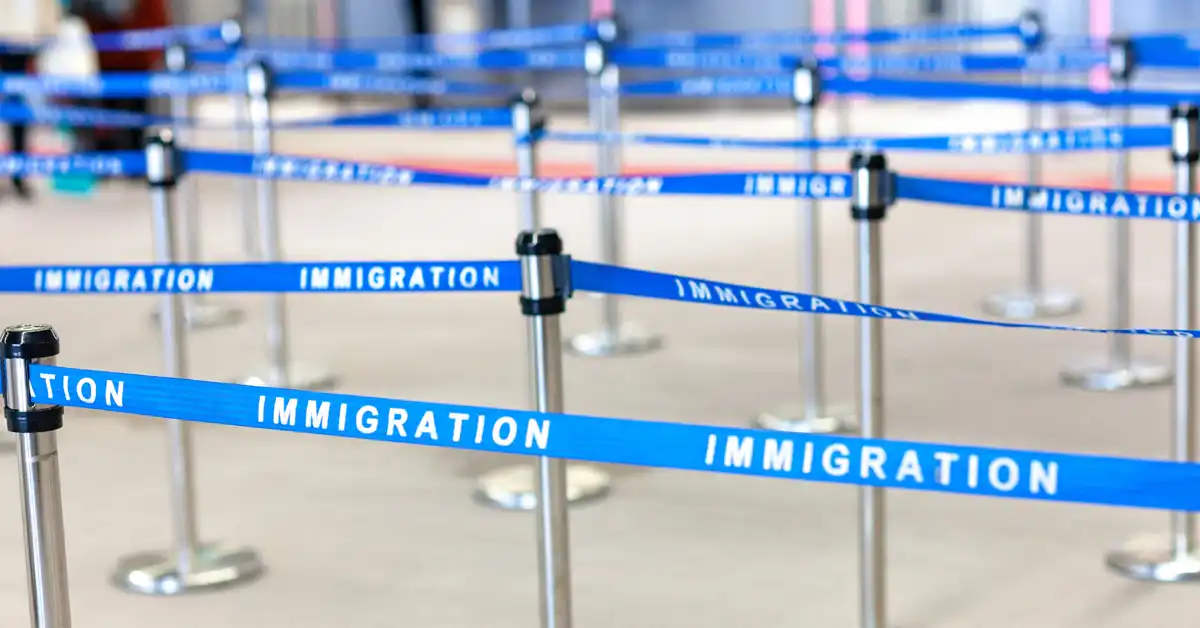According to the alien registration requirement as of February 25, 2025, any national of a foreign country aged 14 or older who has been in the U.S. for more than 30 days must register online and have their fingerprints taken. They must then carry documentation of their registration with them at all times. Parents are to register any children under the age of 14, and those children must re-register and be fingerprinted when they reach the age of 14.
Enforcement of Alien Registration Requirement
The alien registration requirement is actually part of an immigration law dating back to 1952, but in an executive order dated January 20, 2025, President Trump announced that enforcement of the regulation requiring noncitizens to register and be fingerprinted would begin again. The Department of Homeland Security (DHS) explains this as a law that has previously been ignored, but now compliance will be enforced. Failure to comply could result in both civil and criminal enforcement, such as fines and imprisonment.
The word “alien” is taken from the original wording of the law, enacted at a time when the word was more commonly used to refer to foreign nationals or noncitizens in the U.S. The term appears to originate around 1798 when it was used in the Alien and Sedition Acts to set restrictions around immigration to a young United States. Since then, “alien” is a term still commonly used in immigration law (i.e., Alien Registration Number, Petition for Alien Relative, etc.)
Who Must Register?
- If you are 14 years of age or older and were not fingerprinted when you entered the U.S. (if you entered just showing your passport) you must comply with the new registration requirement.
- Children under 14 must be registered by their parents.
- Noncitizens who are visiting in the United States for more than 30 days must comply as well.
You not only need to register if you fall into one of the above categories, but you should carry your registration documents with you at all times.
How to Register
Below are the steps for alien registration requirement:
- Create a USCIS (U.S. Citizenship and Immigration Services) account here.
- Fill out Form G-325R (Biographic Information – Registration).
- Make an appointment to be fingerprinted and have your photo taken.
- Download a Proof of Alien Registration document from your USCIS account.
Which Noncitizens Do Not Need to Register?
If you have any of the following documents, you do not need to register:
- I-94 (Arrival-Departure Record)
- I-95, Crewmen’s Landing Permit
- I-184, Alien Crewman Landing Permit and Identification Card
- I-185, Nonresident Alien Canadian Border Crossing Card
- I-186, Nonresident Alien Mexican Border Crossing Card
- I-221, Order to Show Cause and Notice of Hearing for deportation proceedings
- I-221S, Order to Show Cause, Notice of Hearing, and Warrant for Arrest of Alien (Individuals against whom deportation proceedings have been initiated)
- I-551, Permanent Resident Card for lawful permanent residents
- I-766, Employment Authorization Document (work permit)
- I-862, Notice to Appear for deportation proceedings
- I-863, Notice of Referral to Immigration Judge for deportation
In summary, if one of these applies to you, you do not need to register:
- You entered the U.S. on a visa or are a green card holder
- You were paroled into U.S.
- You have an employment authorization
- You have border crossing paperwork
Notably, the USCIS website also specifies that American Indians born in Canada who entered the United States under section 289 of the INA, and members of the Texas Band of Kickapoo Indians who entered the United States under the Texas Band of Kickapoo Act, are not required to register.
What Does Complying with Registration Rule Do?
Unfortunately, complying does not offer legal status or protect you from deportation, and it does not authorize you to work. However, complying with the registration requirement will keep you from criminal prosecution or fines. Failure to register could result in a fine of up to $5,000, imprisonment for up to 6 months, or deportation if you provide false information.
Cost of Registration
At the moment the price of registration is free, but DHS is considering a $30 per registration fee in the future.
Summary
Some people are concerned about the implications of complying with the registration requirement, which is understandable. While not complying may make you a target of immigration enforcement, registering could potentially do the same.
For help with this or any immigration questions you may have, fill out the form here to schedule a time to speak with a qualified immigration attorney. It has never been more important to have a knowledgeable and compassionate advocate on your side.

